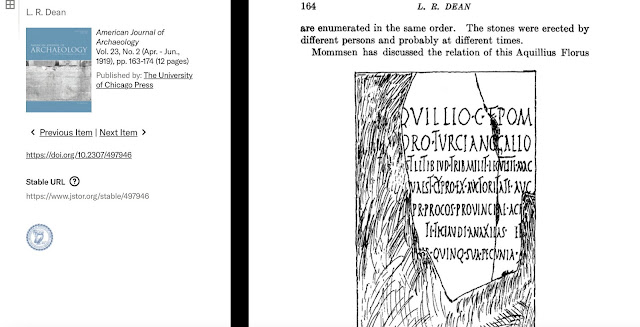At least 500 years before the Kök-Turks, there was (at least) a Turkish country inhabited by those who call themselves Turks.
Information is recorded on the tombstones I will give below. 'Turciae' means 'Turkish Land' in Latin (genitive). They were pagan:
Now look at these:
 |
| Year 98-116 CE / 1. yy'ın sonu 2. yy'ın başı. Türkiye adlı yer adı. |
 |
| 3. yy'dan Türkiye adı. |
 |
| Bugünkü Yunanistan'da Attica'da bir Türkiye |
Source: search for: Turc
*
Unfortunately, I could not find any additional information about this Turk/Turkiya anywhere. Yes, on many tombstones there are "Turcish" people coming from Turkey, but it is not wanted to be known who is a Turk or where Turkiya/Turkiya/Turkey is.
*
There is an other link about an inscription about Turcs/Turcia bot no info about those.
Link: Inscription with Turk/Turcii by JSTOR
Now look at the Greek word for Tourkia. It is the same word in same way like after 1000 years. There is a continuity, for sure.
The Greeks called the land always the same, 2000 years long:
Tourkia: The Land of the Turks
See below:
*
And now a couple of TURKS on THE STONES (Because it is nice to see the word TURC/TURK):
Enjoy them:
and the links for those:
Links:
*
More about this issue?
Read on my blog: ancient-roman-gens-turcia-and-turks
*
Uzunbacak Adem






















.jpg)